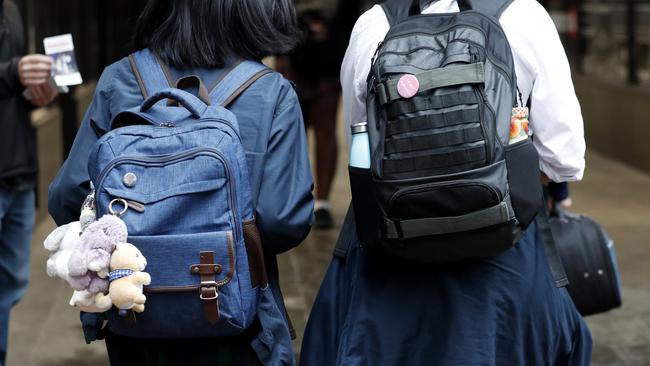The secret to why children are better at fighting off Covid-19
Children’s ‘innate’ immune systems are better at overcoming Covid-19 than adults’ and there is another factor making it harder for the virus to take hold.
National
Don't miss out on the headlines from National. Followed categories will be added to My News.
Children are better at fighting off Covid than adults because they have a stronger innate immune system, a new Yale University study shows.
They also have fewer of the ACE2 receptors in their bodies than adults, which also makes infection more difficult for the virus, according to Australian National University infectious diseases expert Professor Peter Collignon.
It is these receptors that the Covid-19 virus binds to in order to infect our cells.
“One of the main receptors that the Covid virus locks on to is the ACE2 and basically children seem to have a lot less of it at least until puberty and that’s a big factor, and their innate immunity also works differently,” Professor Collignon said.
He said while a small number of children developed bad cases of the virus, most experienced only mild symptoms.
“Everywhere around the world, the peak, the people who get Covid and spread it are 20 to 30 year olds, and then probably 30 to 40 year olds, mainly because they interact so much,” he said.
“So it was always ridiculous closing schools, particularly primary schools when you had, you know, clubs and bars and restaurants open.”

Professor Kevan Herold, an immunobiology expert at Yale University, has been examining why children are better at dealing with the virus.
He tested nose and throat swabs from 12 children and 27 adults and found the samples from children contained higher levels of two immune proteins called cytokines than samples from adults.
Also, more genes involved in the initial immune system response to invaders were active in children than in the adults.
The human immune system has two lines of defence.
The first line, called the innate immune system, is the mucus in the nose and throat that traps harmful particles and keeps them out of the body.
It also involves proteins called cytokines that trigger the body to fight off bugs and this is the system that is stronger in children.
The body’s second line of defence is the adaptive immune system which uses T cells and B cells to fight off an invader.
It remembers past infections and marshalls forces to fight them off in the same way it did before and this is the system that is stronger in adults.
The adaptive immune system takes longer to activate and it is not as strong in children because they have not encountered as many infections over their lifetime as adults.

This lack of immune memory could be an advantage for children in fighting off Covid-19, according to Peter Doherty Institute researcher Amy Chung.
She has found older people’s immune systems were targeting parts of the Covid-19 they had encountered in other coronaviruses.
“Those parts don’t seem to be as important to stopping infection,” Dr Chung told the Wall Street Journal.
Children don’t have as strong pre-existing antibody response but the advantage of this is that when they encounter the Covid-19 virus their immune system attacks the essential parts of the virus immediately.
Omicron cases have been in decline nationally after peaking in mid-January and experienced only a tiny increase the week school returned before continuing to decline.
More Coverage
Originally published as The secret to why children are better at fighting off Covid-19





